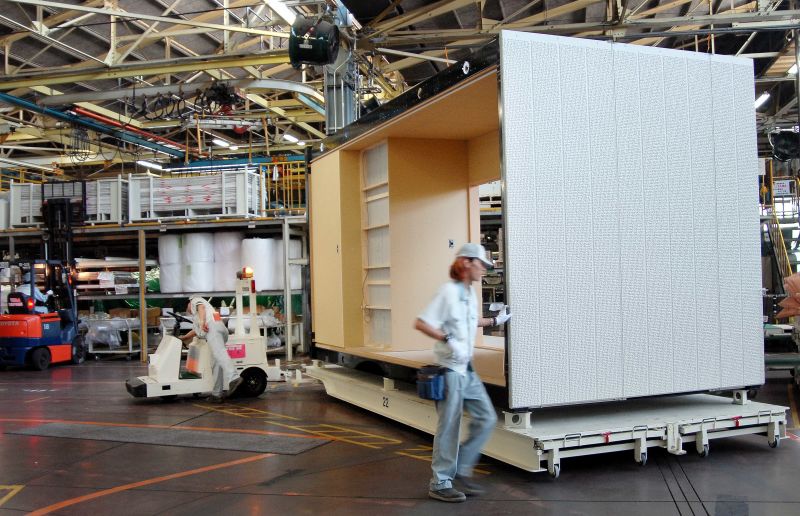Surprisingly, the founder of Toyota, Kiichiro Toyoda, did not start out working in the automotive industry. He wanted to automate the loom machine to alleviate the burden it placed on his mother and the women in the village.They were still making textiles by hand, and he set out to invent and sell the first automated textile machine in Japan.
In 1923, a huge earthquake then hit Japan which caused the wooden houses in Tokyo to fall apart and a great fire to spread in the city. Kiichiro Toyoda had a long term vision of building high quality houses. It was all part of his vision that manufacturing should improve people’s lives and that machines must work alongside employees and not simply replace them. In 1950, Toyota T&S Construction Co. Ltd. was founded to make pre-fabricated houses for the employees of Toyota Motor division. In 1975, they started selling single family pre-fab homes to the public. Pre-fabricated homes in Japan did not have a reputation of good quality. However, the Toyota pre-fab homes were made of steel, had 60 year guarantees, and could be assembled in one day. The typical family home in Japan was made of wood and needed to be demolished and re-built every 30 years.
Elements of the Toyota Production System utilized are:
- Just-In–Time: where the right amount of material is delivered from the suppliers at the right time to reduce oversupply and undersupply of materials and finished products.
- Jidoka: Automation that aides the workers and improves production quality.
- Kaizen: Continuous Improvement where ideas from workers are used to better manage the operations in a continuous manner year after year.
- Quality Control Circle Activity: The means of recording defects through statistics and noting the rate of improvement by the reduction of defects.
- Genchi Genbutsu: meaning“go and see”.It is the principle that management needs to go to the work site and see by itself where the value is created. Walking around is a fundamental strategy used daily by Toyota leaders. This ensures they fully understand the issues and can act on them effectively.
- Respect & Team Work: It is a crucial requirement for a positive and cooperative work culture. Managers are continuously ensuring that workplace standards of respect and communication are upheld.
Some unique automotive innovations that were transferred into the pre-fab home building include:
- Noise reduction insulation to reduce the upstairs noise from footsteps and plumbing
- Scratch resistant paint to reduce paint cracks and deterioration
- Smart key that automatically opens and closes the front door
- Internal air circulation with a purifier machine that turns on when it detects odors, carbon monoxide and cigarette smoke.
- Solar power management that can collect, store electricity generated by the solar panels and can even sell to the grid





Add Comment